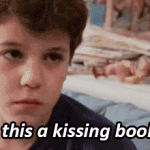Christian H of The Thinking Ground, and the inspiration for the question about genres in this year’s Turing Test, has put together an online quiz to figure out “which genre would give you the most opportunities to express your worldview and explore the questions that you find most interesting.” Here’s how he describes it:
In general, I tried to make questions about the kind of beliefs you have–what the beliefs are about, how you think about them–more than what your opinions are. After all, coming-of-age novels usually have something about protagonists adopting or rejecting their society’s conventions, but the author could prefer either adoption or rejection. Westerns have a spectrum of stances on morality, from very grey morality to black-and-white morality, but they are almost always interested in whether people do (or can) make moral decisions in tough situations. So I tried to make sure my questions were about the general shape of that opinion rather than its specific content, unless that content really is a part of the genre (for instance, if you’re going to write a horror story, you must think that something is worth being scared about).
Kibbitzing (and my results) follow, so if you want to take the quiz unprimed, go ahead and do it.
My results were (scores below 50% indicate an anti-match):
- Science Fiction – 79%
- Western – 75%
- Mystery – 75%
- Coming-of-Age – 67%
- Cyberpunk – 67%
- Romance (Love Stories) – 46%
- Epic – 42%
- Horror – 38%
As with most online quizzes, I found the process of taking the quiz as informative as the eventual results page. I like to see which questions I become aggrieved at. In this case, some of the offenders were:
A person’s life story can be cut off abruptly and left unfinished if they die; it’s important to prevent that from happening unjustly.
It is important to do the right thing, because that’s how you get your happy ending.
A person’s life story is only meaningful if it isn’t abruptly ended by outside forces.
One person’s life story becomes meaningful when they find their place in the world.
One person’s life story only becomes meaningful by fitting into a larger story, like the history of nation, the history of a movement, the history of a belief system, or the history of the world.
Of course, I was allowed to click ‘Disagree’ on these, and I did, emphatically, but the quiz didn’t offer me the option I quite wanted, which was to round up the people clicking ‘Agree’ and have pugnacious coffee with them. Now that I’ve got through the quiz, it looks like I was set off by nearly every question about ‘meaningfulness’ in the quiz. It just seems like an unhelpful question to ask.
When I’m making choices, I don’t care (very much) about how meaningful each of my options are. If I care at all, it’s in an aesthetic sense; it’s more romantic to help someone who previously wronged you than a stranger. It makes for better catharsis. But I’m more than a little suspicious of that tendency, which limits my desire to act, especially when the kind of service required of me is quotidian.
Ironically, one of the other questions I disagreed with helped me put a finger on why these questions irked me. One of the quiz prompts asked me to agree or disagree with, “One of the biggest challenges in life is not getting distracted or misled from the bigger picture” and I wound up disagreeing. I certainly think we end up sphexishly carrying out habits without thinking about how they’re serving us or others, but many of my retreats into abstract analysis are a retreat from the presence of others.
I can make questions big enough to be hard and interesting, while ignoring the question immediately in front of me, which is how I should respond to the particular need of the person in front of me, who might need my time, my thoughts, or my honesty about my own need. Those questions tend to be boring, since I usually already know what I ought to do, but am a little busy or tetchy or defensive to act.
Thinking too much about meaning and stories lets me off the hook to think about anything but the particular duty and person in front of me. I don’t imagine that everyone needs to focus on retreating from meta as much as I do, but taking this quiz made this particular temptation a good deal more visceral and unappealing than when it usually crops up for me.













